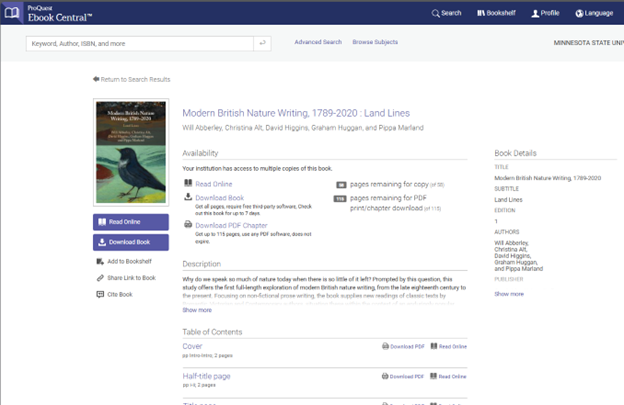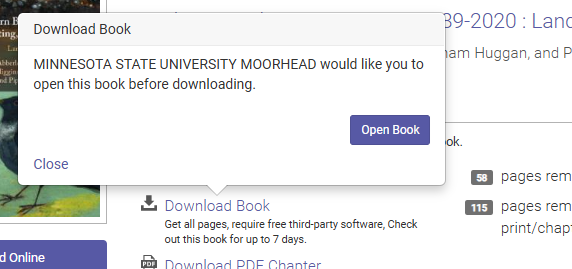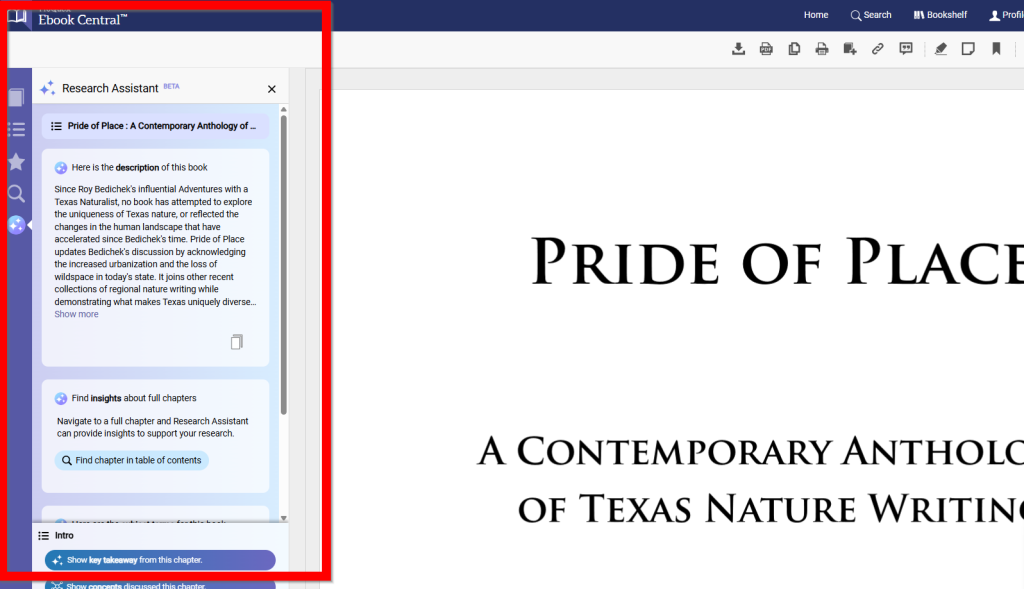Generating Ancillaries
Travis Dolence
AI Generated Teaching Supports
Artificial intelligence can assist educators by generating a wide range of classroom materials, including curated reading lists, interactive activities, quizzes, and discussion prompts. These resources can be drawn from open educational materials, scholarly journal articles, e-books, and even licensed content platforms, allowing instructors to streamline preparation while maintaining academic rigor. By leveraging AI in this way, faculty can focus more on facilitating learning rather than solely on content creation.
Example: Developing Discussion Questions using a Licensed E-Book
Goal
In this example, AI was used to generate a list of discussion questions based on content from an eBook available through a licensed academic platform. By analyzing the text, the AI was able to identify key themes, concepts, and points of inquiry aligned with course objectives. This approach streamlines the process of developing thoughtful, content-specific questions while maintaining academic rigor.
How It Was Done
This example focuses on the creation of a list of discussion questions for ENGL 435 – Nature Writing/Ecocriticism. This course is characteristic of many upper-division humanities classes that do not utilize a conventional textbook, but rather incorporate readings and materials from diverse sources.
The example book used is from ProQuest’s eBook Central. However, there are several other e-book platforms (both commercial and open) utilized by Minnesota State schools that contain an extensive collection of scholarly ebooks. These include: ProQuest’s eBook Central, eBooks from Ebsco, O’Reilly for Higher Education, Oxford’s Very Short Introductions, Directory of Open Access Books, and Pressbooks Directory.
This is the title used for this example:
Abberley, Will, et al. Modern British Nature Writing, 1789-2020 : Land Lines, Cambridge University Press, 2022. ProQuest Ebook Central, https://ebookcentral.proquest.com/lib/mnstate/detail.action?docID=6942500

- In the eBook Central platform, I used the Download Book option to open the book, which displays it fully in the browser before downloading. In this view, I could not use CoPilot in Chrome without an extension. However, opening the book in Microsoft Edge allowed me to view the entire book and use Copilot on the text.
-

Screenshot showing download function in ProQuest’s Ebook Central.
- Given the volume of text being queried to develop discussion questions, iterative prompting is essential for achieving optimal results. This process is particularly significant when aiming to create questions that are closely aligned with specific learning outcomes or course objectives.
Results
Considerations
Potential issues
- One concern was the use of copyrighted material in AI systems. In the case of CoPilot, this concern is largely mitigated as it is licensed, and data is not retained within the system.
- Utilising AI with EBooks necessitates a flexible approach from users, due to the different platforms, formats, and licenses. For instance, the entire book may not be accessible through a browsing function that AI can view, and it might need to be downloaded in another format, such as PDF.
Best Tools for the Job
- Throughout the duration of this project, multiple library-related databases have introduced their own artificial intelligences that operate natively within their platforms. For instance, Proquest’s eBook Central now offers a beta version of an AI tool (see below).
- Another tool that could be considered for creating ancillary material is Google’s NotebookLM.


